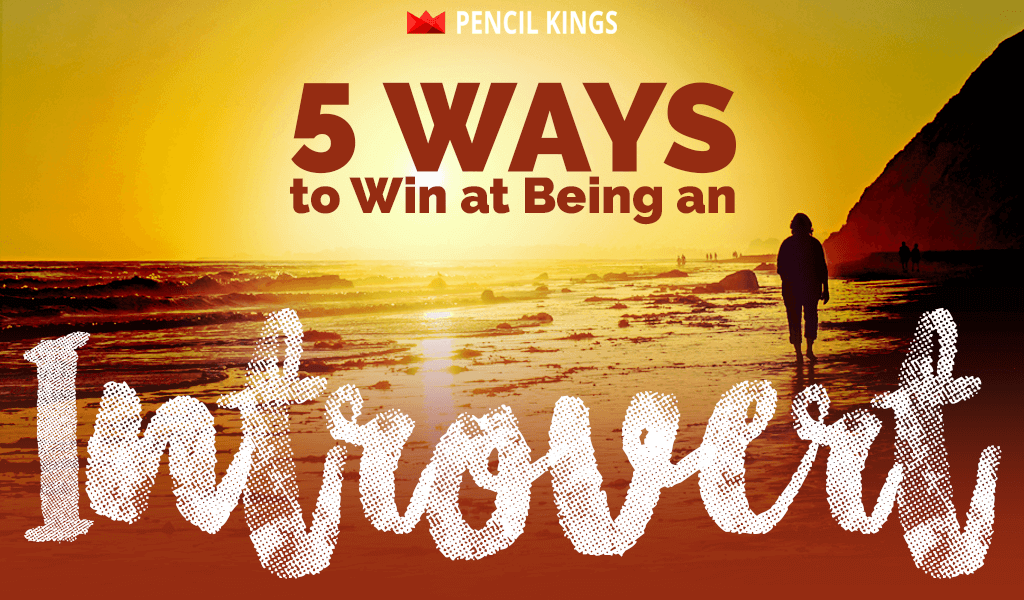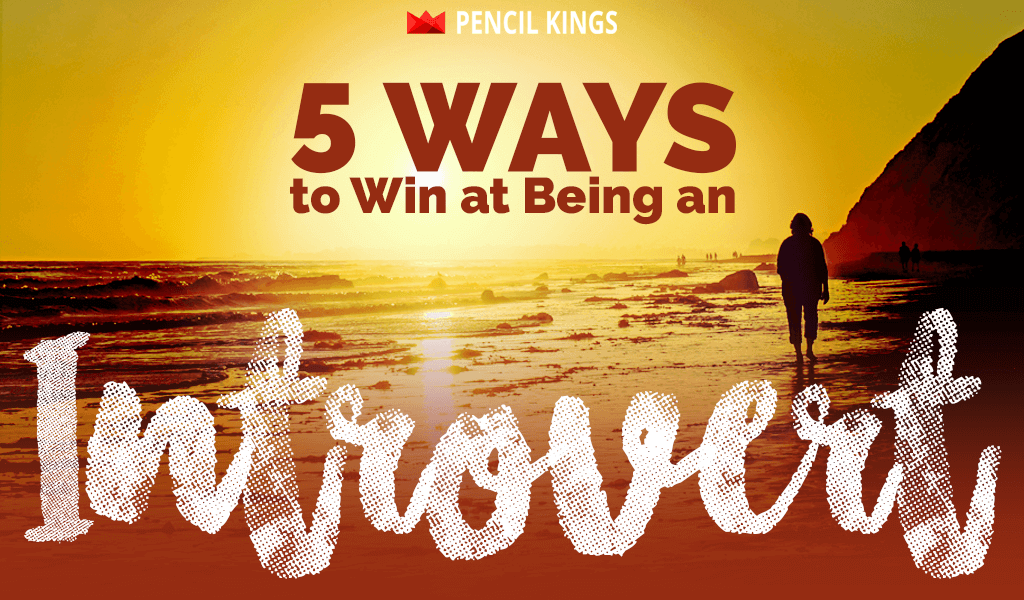
You’re probably used to it by now. There you are, happily minding your own business and taking everything in, but your friends keep asking if you’re ok.
How come you spend so much time alone? And what do you mean you don’t want to go to the epic party at the weekend when everyone, I mean everyone, is going to be there?
Being an introvert can be a lonely art. After all, there are plenty of misconceptions about this personality trait.
For example, some extroverts might think introverted, arty types are aloof and a little stuck-up, while we seem to be bombarded with louder-than-life celebrities and other famous faces shouting from the rooftops about how outgoing you need to be to succeed in life.
Do you have to be an introvert to be creative? And what makes introverts different to others?
The subject of introversion was covered on BBC Radio 6 Music recently by Mary Anne Hobbs in a series of programs called Celebrating The Introvert.
It got us thinking about the lonely business of making art, the long hours of solitude and those times when being surrounded by too much chit-chat can leave us feeling drained.
In this series, Mary mentioned artists such as self-confessed introvert and singer Lorde, who despite performing onstage to thousands of people, still suffers from what she describes as ‘crippling stagefright’ and a feeling of fear she says wouldn’t wish on someone she hated.
Have you ever been told you’re an introvert? Do you feel it’s a blessing or a curse? Perhaps you’re not sure if you’re an introvert or extrovert? Take this quick test to find out.
It’s time to shed some light on this subject and uncover what happens in an introvert’s brain and whether or not this makes you a better artist.
In her series, Mary spoke to reporter, writer, broadcaster, and self-confessed introvert, Tazeen Ahmad and sculptor Richard Wentworth – one of the UK’s most influential living artists.

Singer and self-confessed introvert, Lorde, is often consumed by ‘crippling’ stagefright
Here are 5 things we’ve learned about introverts:
1. Many People Are Introverts, Say Researchers
People often think introverts are in the minority, but some recent suggests this might not be the case. In fact, the figure could be as high as one in two people, or 57% of people.
Of course, most people aren’t exclusively extrovert or introvert – in the words of the famous Carl Jung: ‘Such a man would be in a lunatic asylum’ – and there’s a term, ambivert, to describe those whose personalities fall squarely in the middle.
Having said that, most people have a leaning one way or the other. And, if you fall into the introvert category, it can often feel like there’s something wrong with you for being this way. As it turns out, you’re not alone.
2. Being Shy Or Having Low Self-esteem Doesn’t Make You An Introvert
Contrary to popular opinion, introverted people aren’t necessarily shy and don’t always have low self-esteem. In fact, being shy and being introverted are two very different things.
Shy people often crave social interaction, but find themselves feeling anxious due to fear of rejection or ridicule. An introvert, on the other hand, doesn’t need as much stimulation and can get by without worrying about or craving interaction with others.
However, according to some research, the reason why some introverts find themselves feeling anxious or suffering from low self-esteem is because of external pressures to be extrovert. I
t’s easy to see why – in our Western world of celebrities and fame, we learn from an early age that the most successful people in life are the outgoing ones who smile a lot and act impulsively.
But what if that’s not you? Trying to be someone you’re not can really take its toll eventually and that’s why many introverts often feel forced to behave in a certain way to be accepted.

3. Extroverts Aren’t Always Happier Than Introverts
Are extroverts happier than introverts? It depends where you live. While Western culture favors extroverts and teaches us that always being the party animal is where it’s at, other cultures take a different view.
In particular, Eastern culture celebrates those who are more contemplative, thoughtful and happy in their own company. Introverts growing up in this environment tend to feel less self-conscious about their own personality traits, so are often happier as a result.
In her book on introversion, author Susan Cain describes how Western culture seems to be biased against the more quiet and reserved individuals in society.
She questions whether countless ‘group projects’ at school, college or in the workplace really are the best ways to get great results from everyone.
Susan goes on to describe how most of the world’s major religions are based upon the actions of individuals such as Jesus, Mohammed and Buddha, who each go it alone in the wilderness to gain inspiration and insight.
She goes on to mention Apple inventor, Steve Wozniak and famous author JK Rowling – both introverts who were amazing because of, not despite, their personalities.
Her findings are backed up by science journalist, Winifred Gallagher, who observed that “Neither E=mc2 nor Paradise Lost was dashed off by a party animal”.
Susan also highlights research from contemporary psychology which suggests that people in groups tend to mimic each other’s opinions and actions rather than form their own.

4. Introverts and Extroverts Have Different Brains
Some studies also suggest another reason why extroverts and introverts see things differently – their brains are hard-wired for it. According to this research, introverts have more activity in certain parts of the brain associated with learning.
It’s also been found that introverts have a low threshold to dopamine – the neurotransmitter in the brain associated with the ‘feel-good’ factor – so don’t need as much of it as extroverts do.
This could explain why highly animated situations such as meeting large groups of people at social events leaves most introverts feeling exhausted and in need of recharging.
It’s also why introverts tend to need less external stimuli and look inwards, rather than outwards, for inspiration.
5. Are Extroverts Always More Successful?
Not always. Although Susan Cain says most Western culture is ‘extrovert-centric’ and that being a ‘people person’ has questionably become one of the most highly desirable personality traits, a quick look at history shows countless examples of introverts who’ve achieved all their goals and more.
Take a look at any of the people we mentioned earlier. It’s also interesting to note how introverts and extroverts can work extremely well together, such as in the case of Apple’s Steve Wozniak and the ever-outgoing Steve Jobs.
Do you consider yourself an introvert?
If you do, it’s time to celebrate it! Remember, it’s your personality that makes you an artist, whether you’re outgoing or not.
Rather than worry about people thinking you’re weird because you spend so much time alone, perhaps it’s time to embrace this side of you and let your creativity flow!
